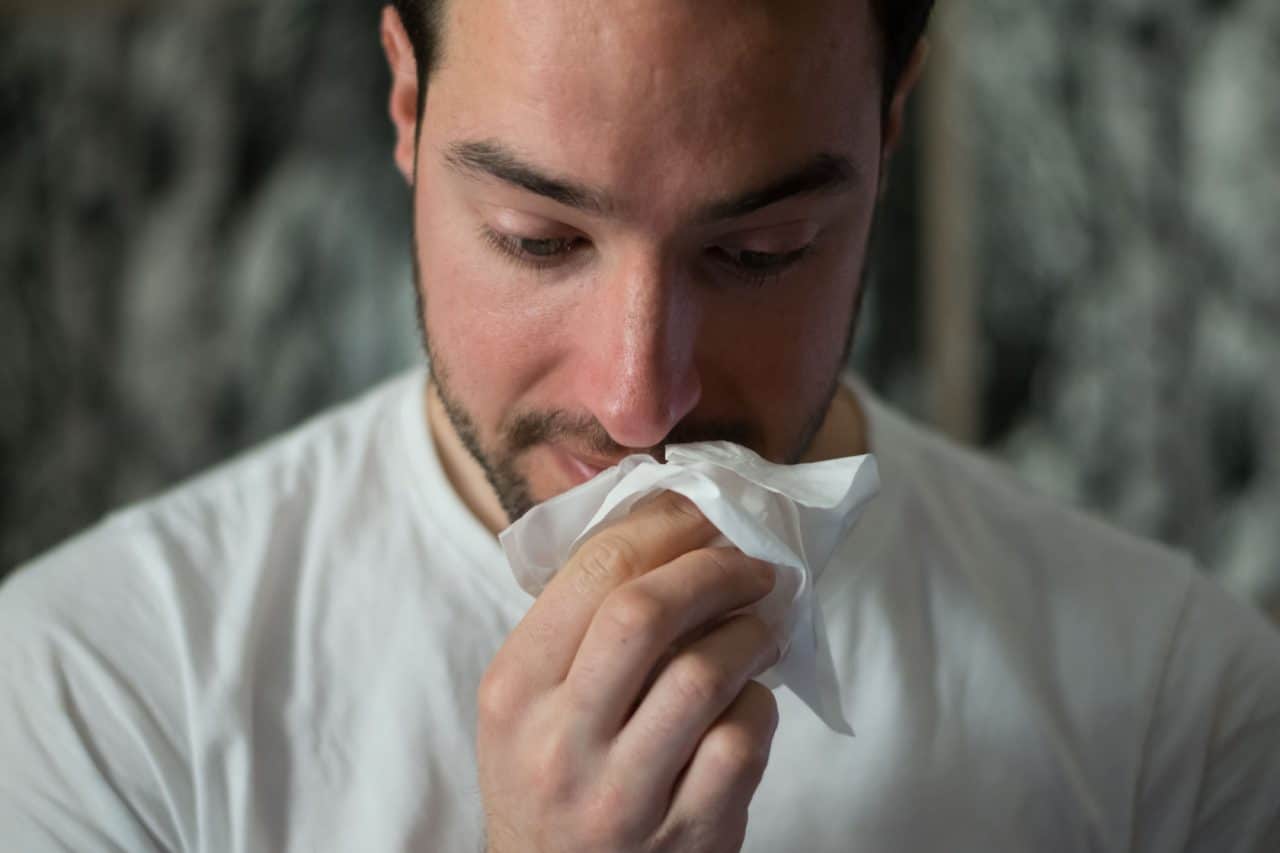Rhinitis causes the inside of the nose to become swollen and inflamed, resulting in cold-like symptoms such as itchiness, congestion, runny nose and sneezing. While rhinitis can be caused by an allergy, many cases are not – this is referred to as nonallergic rhinitis.
While the symptoms of nonallergic rhinitis and allergic rhinitis are similar, their causes and corresponding treatments are different.
Types of Nonallergic Rhinitis

There are four types of nonallergic rhinitis.
Infectious Rhinitis
Infectious rhinitis, also called viral rhinitis, is caused by an infection such as the cold or flu. It causes the lining of the nose and throat to become inflamed, triggering mucus production, sneezing and a runny nose.
Vasomotor Rhinitis
Vasomotor rhinitis occurs when the blood vessels of the nose are too sensitive, causing abnormal nerve control and inflammation. Typically the blood vessels in the nose contract and expand to help the flow of mucus; when they are oversensitive, environmental triggers cause them to dilate, resulting in congestion and overproduction of mucus.
Environmental triggers, different from allergens, include chemical irritants, perfume, paint fumes, smoke, alcohol consumption, spicy foods, stress and change in humidity or temperature.
Atrophic Rhinitis
Atrophic rhinitis is caused by turbinate tissue becoming thinner and harder, resulting in wider, drier nasal passages.
Turbinate tissues cover the three ridges of bone inside the nose; their purpose is to keep the inside of the nose moist, protect against bacteria, regulate air pressure and provide sense of smell.
Thinner turbinate tissue means it is easier for bacteria to grow in the nasal cavity, increasing risk of infection.
Rhinitis Medicamentosa
Rhinitis medicamentosa is caused by drug use, including overuse of nasal decongestants, beta blockers, aspirin or cocaine.
Treatment of Nonallergic Rhinitis
Most cases of nonallergic rhinitis clear up on their own. However, nasal decongestions, used properly, may help reduce swelling and stuffiness.
Some solutions to reduce symptoms include:
- Antihistamine nasal sprays, even if the condition is not caused by an allergen
- Anticholinergic nasal sprays to widen airways and reduce mucus production
- Sodium cromoglicate nasal sprays to reduce inflammation
- Saline solution irrigation to relieve crusting and dryness
- Antibiotics in the case of infection
For more information about nonallergic rhinitis or to schedule an appointment, call Hampton Roads ENT today!
